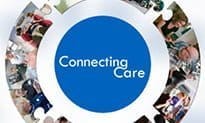Connecting Care ramps up
- 18 May 2015

Bristol’s shared care record scheme has moved into phase two, with the aim of reaching 10,000 users over the next five to seven years.
The Connecting Care programme went live in Bristol, North Somerset and South Gloucestershire in December 2013.
It shares real-time patient data between GPs, community providers, local authorities and three acute trusts via an Orion portal.
South, Central and West Commissioning Support Unit senior business analyst Natasha Neads told Digital Health News the local mental health trust has also recently joined the programme.
The pilot phase involved 500 users in urgent and unplanned care settings. The project has now entered phase two which aims to reach 10,000 users over the next five to seven years. It also involves some redesign work on the way the portal operates, based on feedback from the pilot.
The roll-out of stage two has been supported by NHS England with a £450,000 grant from the 'Safer Hospitals Safer Wards: Technology Fund'.
“We are currently defining the vision for the programme over the next five to seven years. We hope that by the end of June we will have a shared vision across all partners for what we want it to do,” said Neads.
Pharmacists were the highest users of the shared record for medicines reconciliation, during the pilot. Feedback was that it made patient care safer and saved them significant time by not having to call GP practices or send faxes requesting information, Neads explained.
Users have to sign into the portal separately, but the aspiration is for them to access Connecting Care from within their clinical system.
The various systems in use at the providers, including Cerner Millenium, Medway, RiO, Emis and Adastra, feed into an integration engine and clinical data repository which then feeds into the portal. GP data is sent via Healthcare Gateway’s Medical Interoperability Gateway.
Neads said the local community services will soon start using Emis, which is already used by all of the GPs in the area.
Information available in the read-only portal includes; patient demographics; laboratory results; radiology; allergies; diagnosis; medications; problems; procedures and documents relating to the patient.
User-based access means different people can see different information, depending on what kind of access has been authorised.
Patients are asked for their consent for a health care worker to access their Connecting Care record at the point of care, unless they are unconscious.




